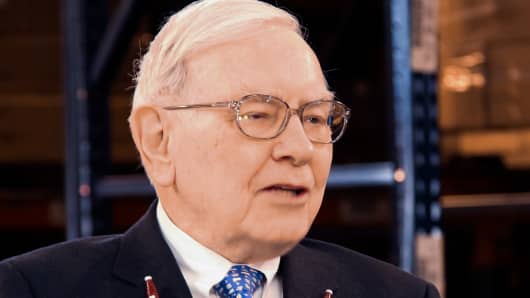President Obama is no longer pressing to raise income tax rates on the rich. But that doesn't mean he thinks the wealthy are paying enough in taxes.
Outlining his budget proposals to Congress on Wednesday, Mr. Obama pushed to raise more than $600 billion in new revenue, mainly by curbing deductions for the most affluent taxpayers and forcing millionaires to pay a minimum rate of 30 percent.
Under the White House plan, deductions for tax breaks like mortgage interest and contributions to charities would be capped at a maximum rate of 28 percent. The caps would limit the value of the breaks to the top 3 percent of taxpayers who face higher marginal tax rates and generate about $529 billion in additional revenue over 10 years.
Many of the budget proposals, including the limit on deductions, have been made before by the Obama administration. Analysts said Congress was unlikely to adopt them in isolation, but that some Republicans might be open to a broader deal that included measures to close various loopholes in the tax code.
Chuck Marr, director of federal tax policy at the Center on Budget and Policy Priorities, said the main part of the tax proposal—curbing tax deductions for high-earners—could form part of a future deal because they were close to what Republicans have themselves proposed in the past. "In any agreement that finally comes together this will be the core revenue piece of it," he said.
At the same time, the administration formally proposed the so-called Buffett rule, which would impose a new minimum 30 percent tax rate on households earning incomes above $1 million. It said this could generate an additional $53 billion in revenue over a decade.
It is named after Warren E. Buffett, the billionaire investor, who said in an Op-Ed article in The New York Times that he was paying a lower tax percentage than members of his office.
"This proposal will prevent high-income households from using tax preferences, including low tax rates on capital gains and dividends, to reduce their total tax bills to less than what many middle class families pay," according to the White House.
Roberton Williams, senior fellow at the Tax Policy Center in Washington, said the rule's inclusion in the budget proposal was an indication that the Obama administration was determined "to make sure that the rich people pay something."
Tax rates for high-earners were increased this year for the first time in two decades as part of the postelection deal to avoid the so-called fiscal cliff and to help pay for the cost of expanded health care coverage.
Despite those increases, the effective tax burden for the very wealthy remained considerably lower than in past decades, according to Emmanuel Saez, professor of economics at the University of California, Berkeley. He estimated the recent tax increases could take the total average federal tax rate of the top 0.1 percent of earners to about 40 percent, compared with about 51 percent in 1981. The total tax take from that group had fallen to about 33 percent after the Bush tax cuts.
In its proposal, the Obama administration also proposed a $3 million limit on tax-deferred individual retirement accounts—another tax measure aimed at wealthy individuals who have been accused of using the accounts to shelter large amounts of money rather than for simple savings.
The White House also proposed, as it has in the past, ending the preferential treatment of private equity and hedge fund profits, known as carried interest. These profits are currently taxed as a long-term capital gain.
The treatment of carried interest has for years been strongly defended by elements of the financial industry, and the White House proposal was quickly attacked on Wednesday by the leading private equity industry trade group. Even supporters of the proposal conceded that it faced stiff political opposition.
"Republicans are never going to sign off on this," said Andrew Fieldhouse, an analyst at the Economic Policy Institute.
While most of the proposed tax increases were aimed at higher earners, there were important proposals that would affect all individuals.
The administration proposed higher taxes on tobacco products to pay for early childhood education, raising about $78 billion over a decade.
Its plan for a new cost-of-living formula to reduce future Social Security benefits would also involve indexing income tax brackets to the different measure of inflation. This would effectively increase the money raised by the income tax across the board over the next decade, affecting "people throughout the income distribution," said Donald Marron, director of the Tax Policy Center.
President Obama said he was still committed to lowering the federal corporate tax rate from 35 percent. But he also wanted to close tax loopholes that allow many companies to pay a much lower effective corporate tax rate.
In the budget, he proposed eliminating special tax privileges for the oil, gas and coal industries to save a further $44 billion over 10 years, increased taxation of foreign earnings, and special rules for corporate jets.
The Business Roundtable, a lobbying group that represents major corporations, said it welcomed any cut in corporate taxes, but wanted the reductions to be part of broader reform, and objected to measures that aimed at particular industries.
"Singling out certain industries for taxation is bad tax policy," the group said in a statement.


